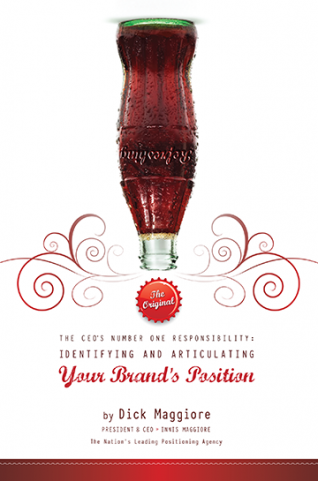Positioning has become the most powerful concept in marketing. Positioning has a twin concept that has received little attention. In Jack Trout's latest book, Repositioning, released in October 2009, this twin concept is finally emerging into the light of the marketplace.
Competition, change and crisis are three reasons for the emergence of repositioning. If there's one thing that has changed dramatically over time, it is the amazing increase in the level of competition. After the rise in competition, the acceleration of change is the next big problem making business life more difficult. Technology is driving this change, often referred to as "disruptive technology." And finally, crisis. Well, this great recession qualifies. So, there you have it; competition, change and crisis - the triple crown.
Positioning is how you differentiate yourself in the mind of your prospect. It also includes a body of work about how the mind works. Repositioning is how you adjust perceptions, whether those perceptions are about you or about your competition.
Repositioning is a competitive strategy. You have to focus on your competitors and their strengths and weaknesses in people's minds. Marketing is a battle of perceptions. You have to search out that one attribute or differentiating idea that will work in the mental battleground. Then you have to be willing to focus all your efforts to develop a coherent strategy to exploit that repositioning idea.
Repositioning often hangs a negative on your competitors as a way to set up a positive. Repositioning comes down to finding a weakness in the leader's strength and attacking at that point. What you're really doing is exploiting a perception. Repositioning is about readjusting people's perceptions, not changing their perceptions.
Here are some examples:
-
- Apple hung "nerdy" on PCs. It set up its positive - Apple's coolness.
-
- Many years ago, Scope hung "bad taste" on Listerine by claiming that a user would end up with "medicine breath." That set up the "good tasting" idea for Scope.
-
- Stolichnaya vodka hung "American made" on its U.S. competitors. It was setting up "the Russian vodka" as its positive idea.
-
- Many years ago, BMW introduced its automobile into the U.S. market by repositioning Mercedes as "the ultimate sitting machine." This was a set-up for its long-term position of being "the ultimate driving machine."
-
- Denny's restaurants, which hung "candy breakfast" on competitors such as IHOP while talking about its "real breakfast."
-
- During the 2004 presidential campaign, the Republicans hung "flip-flop" on John Kerry. Two years later, the Dems hung "incompetent" on the Republicans.
When you're ready to reposition, the problem you face will be obvious, and the solution to the problem will be obvious. Unfortunately, people tend not to see the obvious.
Dick Maggiore is Innis Maggiore's President & CEO.



